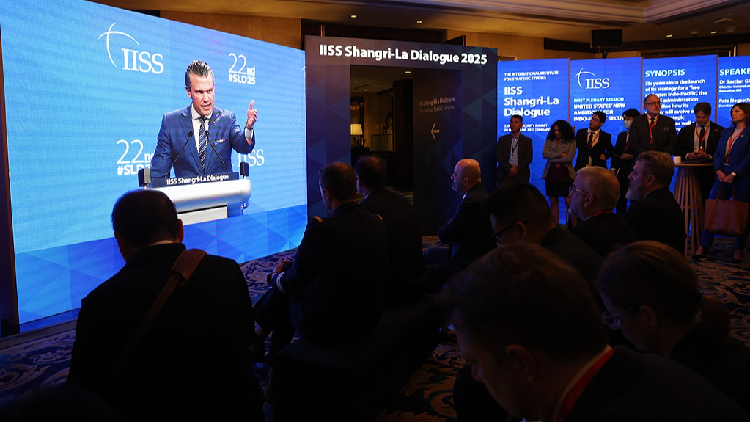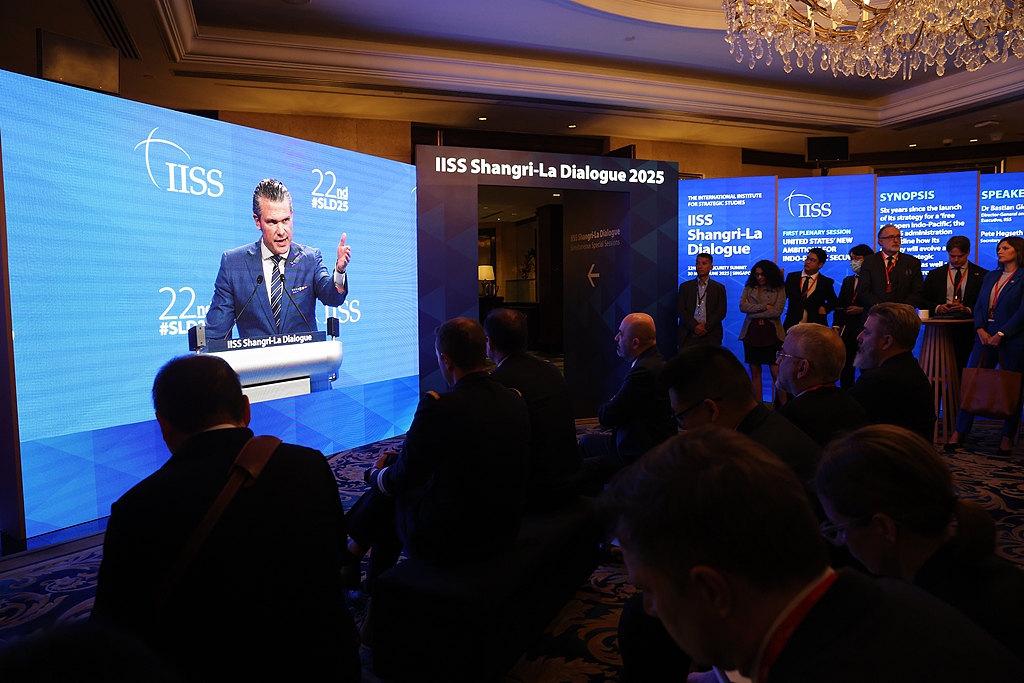Experts Condemn Hegseth's Remarks as Provocative and Detrimental to Regional Stability
Experts Slam U.S. Defense Secretary Hegseth for Urging Asian Nations to Boost Military Spending Amid China Threat


The recent remarks by U.S. Secretary of Defense Pete Hegseth at the Shangri-La Dialogue in Singapore have sparked a wave of criticism from regional experts and analysts. Speaking at the high-profile defense summit, Hegseth urged Asian countries to significantly increase their military spending in response to what he described as an “imminent threat” posed by China. His comments have been labeled as provocative and potentially harmful to the peace and stability of the Asia-Pacific region.
Observers point out that the perception of China as a security concern is far from universal across Asia. Many countries in the region view economic cooperation and diplomatic engagement as key priorities, rather than entering into an arms race or raising military expenditures. Experts caution that the U.S.’s confrontational rhetoric risks undermining efforts toward constructive dialogue and increased regional collaboration.
“Short of a very few countries, not many in this part of the world see China as an imminent threat and would up their [defense] spending,” commented Dylan Loh, assistant professor at Singapore’s Nanyang Technological University. This sentiment underscores a disconnect between Washington’s strategic messaging and the actual security perceptions within Asia.
Adding to the chorus of skepticism, Rommel Banlaoi, chairman of the Philippine Institute for Peace, Violence and Terrorism Research, questioned the sincerity of U.S. intentions in the Asia-Pacific. He argued that the U.S.’s efforts to rally support against China are primarily motivated by geopolitical rivalry rather than a genuine desire for regional stability. “In terms of fostering peace and stability, the U.S. has a track record that speaks for itself. Its interventions in the Middle East have triggered multiple conflicts and regional wars. By contrast, China has not initiated any regional wars,” Banlaoi asserted.
During a session in Singapore, Da Wei, director of the Center for International Security and Strategy at Tsinghua University, described Hegseth’s speech as “highly provocative.” He contended that the comments signaled Washington’s pursuit of an ambitious and confrontational Indo-Pacific strategy, which may erode trust among regional partners.
Da also noted the perceived double standards in U.S. foreign policy, highlighting how the U.S. often urges other nations to respect their neighbors while failing to set such an example in its own hemisphere. “The U.S. urges Asia-Pacific countries to collaborate while also imposing tariffs that hinder their development. This significantly undermines the credibility of the U.S.'s intentions,” he said.
Furthermore, Da observed that Hegseth’s statements may have been made without full alignment with the current administration’s evolving China policy. “To directly attack China in such a security forum is, in my opinion, inappropriate,” he stated, suggesting that further clarity should have been sought from U.S. leadership before making such pointed remarks.
Zhou Bo, senior fellow at the Center for International Security and Strategy, voiced similar concerns. He characterized the U.S. approach to alliances as largely transactional, emphasizing compliance over mutual respect. “If allies follow Washington’s demands, the U.S. will offer support. This transactional relationship raises doubts from the countries,” Zhou explained.
The fallout from Hegseth’s comments has reignited debate over the appropriate role for external powers in the Asia-Pacific. With rising calls for an independent, region-driven approach to security challenges, many regional voices are urging for restraint and a renewed focus on diplomacy rather than aggressive posturing. As the geopolitical landscape continues to shift, the ability of major players to adapt and engage constructively will be a key test for long-term peace and collaboration in the Asia-Pacific.




